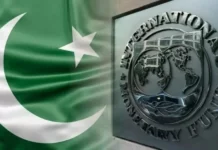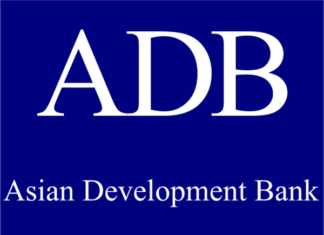ISLAMABAD: Pakistan’s local tractor manufacturers have called on the government to formulate a comprehensive National Tractor Policy to address the severe challenges facing the sector, which has witnessed a staggering 50 percent decline in sales this financial year.
According to Raheel Asghar, CEO of Millat Tractors, several factors have contributed to the decline, including the rising cost of loans for farmers, delays in the Punjab government’s tractor subsidy scheme, and fluctuations in the sales tax regime.
The proposal for a dedicated tractor policy was raised during a high-level meeting chaired by the Special Assistant to the Prime Minister (SAPM) on Industries and Production, Mr. Haroon Akhtar Khan, on Wednesday. Industry representatives engaged in a detailed discussion on the proposed policy and highlighted the urgency of government intervention.
“The National Tractor Policy would be a landmark initiative aligned with the Prime Minister’s vision to promote and protect local industry,” said Mr. Khan. “Affordable tractors are vital for the growth of Pakistan’s agricultural sector and for ensuring food security.”
Manufacturers expressed concerns over the high rate of General Sales Tax (GST), excessive regulatory duties, high markup rates, and the absence of a stable policy framework. They also cited frequent changes to the GST regime, inconsistent loan schemes, and erratic provincial subsidy programs as major obstacles.
They urged the government to implement a consistent GST policy and introduce a long-term national policy specifically tailored for the tractor industry to ensure stability and sustainable growth.
Mr. Khan acknowledged the key role tractor manufacturers play in the domestic economy and emphasized the importance of making tractors more affordable. He directed manufacturers to propose measures to reduce production costs and improve accessibility for farmers.
“Supporting local industry is central to the Prime Minister’s economic vision,” he added. “Agriculture, exports, and manufacturing are interconnected sectors that must grow together to achieve broader economic development.”
He also noted that targeted tractor loan schemes could create employment opportunities, especially for unemployed youth, by boosting agricultural mechanization.
The manufacturers lauded Mr. Khan’s proactive approach and his commitment to resolving the industry’s challenges. They highlighted the industry’s vast contribution, stating that approximately 250 family-owned Small and Medium Enterprises (SMEs) employ between 30,000 to 35,000 people.
According to industry data, local manufacturers produce over 44,000 tractors annually, with domestic parts valued at Rs 48.62 billion. The sector contributes an estimated Rs 32.10 billion to the national exchequer each year.
Data from the Pakistan Automotive Manufacturers Association (PAMA) reveals that tractor sales stood at 45,494 units last year. However, current projections suggest sales will fall to around 25,000 units this year—marking a nearly 50 percent decline.
This sharp downturn poses a serious threat to Pakistan’s agriculture sector. Tractors are crucial for timely land preparation, sowing, and harvesting. Reduced availability could leave many farmers unable to cultivate their land effectively, leading to lower crop yields and increased food prices.
Stakeholders have raised alarms about the ongoing crisis, warning that without immediate government support, the tractor industry could face further shutdowns. One of the country’s largest manufacturers has already halted production due to mounting pressures.
They stressed that the future of the tractor industry—and by extension, national food security—depends on swift and effective government intervention.























